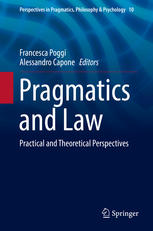

Most ebook files are in PDF format, so you can easily read them using various software such as Foxit Reader or directly on the Google Chrome browser.
Some ebook files are released by publishers in other formats such as .awz, .mobi, .epub, .fb2, etc. You may need to install specific software to read these formats on mobile/PC, such as Calibre.
Please read the tutorial at this link: https://ebookbell.com/faq
We offer FREE conversion to the popular formats you request; however, this may take some time. Therefore, right after payment, please email us, and we will try to provide the service as quickly as possible.
For some exceptional file formats or broken links (if any), please refrain from opening any disputes. Instead, email us first, and we will try to assist within a maximum of 6 hours.
EbookBell Team

4.8
44 reviewsThis volume is the second part of a project which hosts an interdisciplinary discussion about the relationship among law and language, legal practice and ordinary conversation, legal philosophy and the linguistics sciences. An international group of authors, from cognitive science, philosophy of language and philosophy of law question about how legal theory and pragmatics can enrich each other.
In particular, the first part is devoted to the analysis of how pragmatics can solve problems related to legal theory: What can pragmatics teach about the concept of law and its relationship with moral, and, in particular, about the eternal dispute between legal positivism and legal naturalism? What can pragmatics teach about the concept of law and/or legal disagreements?
The second part is focused on legal adjudication: it aims to construct a pragmatic apparatus appropriate to legal trial and/or to test the tenure of the traditional pragmatics tools in the field. The authors face questions such as: Which interesting pragmatic features emerge from legal adjudication? What pragmatic theories are better suited to account for the practice of judgment or its particular aspects (such as the testimony or the binding force of legal precedents)? Which pragmatic and socio-linguistic problems are highlighted by this practice?